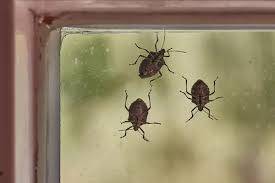Why Insects Can't See Glass: Unveiling the Science Behind this Fascinating Phenomenon
Have you ever wondered why insects often crash into glass windows or doors, despite their apparent agility and quick reflexes? It's a common observation that has puzzled many, and the answer lies in the unique way insects perceive their environment. In this article, we'll delve into the fascinating world of insect vision and explore why insects can't see glass.
_The Compound Eye: A Unique Visual System _
Insects possess a distinct visual system, characterized by compound eyes. These eyes are composed of thousands of individual lenses, giving insects incredible motion detection and wide-angle vision. However, this unique visual system also has its limitations.
_The Problem with Glass: Reflection and Refraction_
Glass is a transparent, smooth surface that reflects and refracts light in a way that's unfamiliar to insects. When light hits a glass surface, it bounces back, creating a reflective barrier that insects can't penetrate visually. Additionally, glass refracts light, bending it in a way that distorts the insect's perception of the environment.
_Polarized Light: The Key to Insect Vision_
Insects rely heavily on polarized light to navigate their surroundings. Polarized light is filtered light that vibrates in a specific plane, allowing insects to detect the orientation of light waves. Glass, however, depolarizes light, making it invisible to insects. This means that insects can't detect the reflective surface of glass, even when it's right in front of them.
_Evolutionary Adaptations: Why Insects Don't Need to See Glass_
Insects have evolved to thrive in their natural environments, where glass is not a common feature. As a result, they haven't developed the necessary visual adaptations to detect glass. Their compound eyes are optimized for detecting movement, recognizing patterns, and navigating complex environments – all of which are essential skills for survival in the natural world.
_Conclusion_
The inability of insects to see glass is a fascinating phenomenon that highlights the unique characteristics of insect vision. By understanding the science behind this phenomenon, we can appreciate the intricate and specialized visual systems that have evolved in the natural world. So, the next time you see an insect crash into a glass window, remember that it's not a matter of clumsiness – it's simply a result of their remarkable, yet limited, visual abilities.



No comments yet
Be the first to share your thoughts!